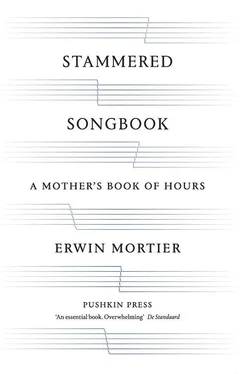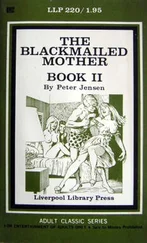So everything must be smashed, he says.
You were the centre, you and Father. We were children and you were parents. A whole universe revolved around the two of you. Everyone was welcome. The seven of us were rarely alone for dinner. Parties in the garden, in the walled inner garden of the house where we were simply happy. Friends, boyfriends, sweethearts, lost souls in need of family affection — they were all welcome. Life, messy, exuberant, nonchalant, hard and beneficent, danced around you.
If I were a Hellenic divinity, I would transform you into two intertwined trees, with broad crowns under which on hot afternoons people could sleep, make love, read on blankets and party at tables.
But everything must be smashed.
Others who have died have strengthened me in all kinds of strange ways. With their lips that had fallen silent, before the earth covered them for ever, they quickly spelled out to me what probably matters most as long as we’re breathing: that love is attention. That they are two words for the same thing. That it isn’t necessary to try to clear up every typo and obscure passage that we come across when we read the other person attentively — that a human being is difficult poetry, which you must be able to listen to without always demanding clarification, and that the best thing that can happen to us is the absolution that a loved one grants us for the unjustifiable fact that we exist and drag along with us a self that has been marked and shaped by so many others.
I am afraid your slow dying, this eternal suspension between life and death, will continue to be an open wound for a long time to come. The ruin, the loss is so total. It swallows everything up. Strips you of door frames of language. Knocks window-panes from their rebates, tears the paper from your walls and scrapes the plasterwork and stones till they give way. Perhaps, perhaps a calmer land will stretch out beyond bewilderment.
I am beginning gradually to unlearn the art of hope, and as hope evaporates despair does not increase — on the contrary. Every day I wake on the edge of perplexity, the crude ore from which the new day will distil pleasure or desperation — or one of the countless alloys both contain. Growing older: getting up in the morning with permanent wounds, the stinging of which, on the way to the bidet or the breakfast table, seeks a precarious balance between despair and ecstasy. The body is again not a perfect fit. We are like adolescents, when we used to hang around angrily in the gap between our most intimate image and the image that was expected of us. Perhaps we are late adolescents: too young to be called old, too old to be young, with gout in our knees and more fragile teeth.
Later, when everything is over, I should thank my friends for the gentle Wailing Walls they erected around me, but perhaps I shall have to ask their forgiveness for all the moments when with almost voyeuristic pleasure I absorbed their bodies. The natural, worldly elegance with which they hold cups, make roll-ups, direct a ballet of pots and pans in the kitchen, and even when they are asleep they don’t fall apart but their organism keeps them intact until they wake up again.
And on the bus in town, I don’t look around me, I seem to be rather grazing with my eyes — sometimes I put my sunglasses on, even though there are clouds. The alarming ease with which feet negotiate steps, the toes lift the heel, the soles spring, and, going round corners, bodies regain their balance without informing us — and the way dogged nature goes on dreaming up new variations on the age-old theme of curves, arses, tits and balls, winks and quips, etcetera. I never tire of staring at it and try to smile as you sometimes used to, in those unguarded moments when a person thinks one of those countless thoughts that they share with no one: a sigh through one’s nose, half mocking, half bewildered — one’s own small respiratory philosophy.
What do we, basically, mean? What are we? Fluffs of seed that tickle God’s intergalactic nostrils. Our existence at most makes him sneeze — his only talent for poetry. And apart from that, according to Darwin and his prophets: creatures constructed mainly of carbon, descended from an ape that one fine day fell out of its tree. Since then we have been laboriously learning to sit on the bumps, impossible to calibrate definitively. Nevertheless I am grateful to the roughly four billion years that life has folded up in our genes because the coincidence of evolution has equipped us with, among other things, mouths with blood-red stamp pads, with which we seal a host of light-footed fates, and can at least frank our tragic farces adequately.
Tomorrow we shall wake up and it will all be over. We’ll hear you downstairs, at about seven in the morning, opening the cupboards and heating the kettle for coffee. We’ll hear you crossing the kitchen floor in your veteran, worn-out slippers and we’ll count the taps on the table top with each plate that you put down. We’ll hear you moaning when the plastic round the vacuum-sealed packet of ground coffee won’t budge using the scissors or your fingers, after which you’ll tear it open with your teeth and spill coffee everywhere — and also the morning mood that sounds in the rattling of the cutlery and the rummaging in the cupboard when you fill our lunch boxes with bread and an apple or a piece of chocolate. We’ll hear the commotion that was the medium of your stubbornness and the concern, which you could never express in subtle language, but bottled up until it spewed out as rage. Were you frightened of us? Probably you were, but equally, when the school results were disappointing or we had unsuitable sweethearts, you were probably angry at what you yourself had missed.
I threw away my own future, you said, by not giving two hoots about it at school, but you never freed yourself from the well-behaved Catholicism that you imbibed with your mother’s milk. I wasn’t allowed to go to art school when I was fourteen — no reproach. Too decadent, a place of free love and worse, according to the pastors for whom you cherished so much respect that every syllable that escaped them was Living Bread. And yet later, when I made my own way, you felt guilty, and were angry at your own anger back then.
Tomorrow you’ll get up. You’ll have put on your pink padded dressing gown and will fry eggs, and surround us with your haze of sleep and concern.
Death, let her go in a kind of forgetfulness, like one of her numerous absent-minded episodes from the past. So that without giving it a second thought she leaves life behind on the edge of the cupboard and exits the room, running her fingertips over the table top, for example one afternoon in June, when there were still poplars in front of the house and the dark grey of an approaching storm compressed the light into a bright yellow band on the horizon, behind the trunks. And then the wind getting up and the first heavy rain pattering on the leaves. And she’s gone, and has long since forgotten the way back.

There is a dream that keeps recurring since you’ve been ill. I’m trying to find my way through a building where it is pitch-black, so dark that I am only aware of rooms that I feel my way into through the echo of my breath and my footsteps resounding from their walls, sometimes far away, sometimes nearby. Sometimes my feet bump into steps, and I pull myself up via the banisters of a staircase which leads to still other landings, other rooms and other staircases.
Sometimes I seem to be walking through long chambers, sometimes through back rooms, one after another. And everywhere the same impenetrable darkness, and everywhere the dry smell of dust, as if in an attic while the summer sun makes the tiles tick with the heat. Sometimes I feel beneath my fingers the surface of doors that will not open. And always there is that moment of gruesome realization that there is no “outside” in the dream, that I am shut up in a universe of darkness and rooms, chambers, staircases, passages and corridors that stretches out endlessly in all directions. The vast desolation of that universe, in which I am utterly alone, vomits me up out of sleep bathed in sweat.
Читать дальше













